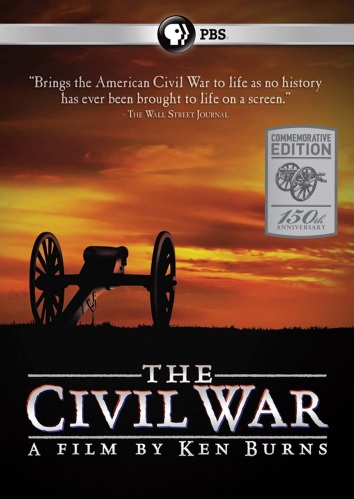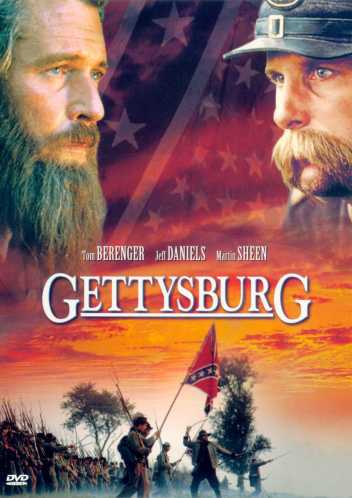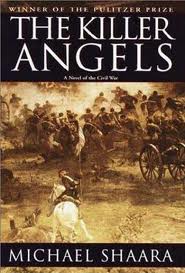Oh, sure, slavery was central. Those who try to minimize that or make other excuses ought to read the actual documents and declarations of secession published by South Carolina and other rebel states. South Carolina's declaration used the word "slavery" proudly, dozens of times. Those declarations presented "grievances" which pretty much consisted of hating northern states for not shutting down abolitionist newspapers. That truly was about it, in almost every secession declaration: "you Yankees allow freedom of the press so folks can say mean things about us. In that case, we spurn the oaths we swore. Goodbye."
"States' Rights" were scarcely mentioned -- indeed, the south had pretty much owned and operated the US Federal Government for thirty years till Lincoln's election ended that long run.
I have long held that the Civil War did not start with the firing on Fort Sumter. It began in 1852 with the passage - and brutal enforcement - of the Fugitive Slave Act, which led to invasion and outright raids of northern states by squadrons of irregular southern cavalry, committing outrages and depredations from Illinois to Pennsylvania, supported first by southern-appointed U.S. Marshals and later - when locals began resisting - by federal troops. These slave-catcher raids, smashing into homes, terrorizing neighbors and dragging off friends you knew since childhood, were the prime provocation that radicalized northerners into re-starting their dormant militias. It is what drove many of them to support Lincoln. Nothing like it happened in the south until Sherman.
But slavery is gone. So why are we still blatantly fighting the same Civil War, 150 years later? Across pretty much the same geographical and cultural divide? Can it be something deeper and psychological? A current that flows through impenetrable veins, that made slavery a poisonous side effect and not a primary cause?
A hint can be found in Ted Turner's excellent 1993 Civil War film, "Gettysburg," based upon the 1974 novel, The Killer Angels by Michael Shaara. (Don't bother with its putrid film prequel "Gods and Generals.") In "Gettysburg" a British military observer, sympathetic to the Confederate cause, comments to General Longstreet that both sides spoke the same language, sang the same songs... but had different dreams.
This resonates with what Mark Twain said -- blaming the war on the addictive quasi fantasy novels of Sir Walter Scott and the streak of romanticism that wove through Southern sensibilities. Indeed, Sam Houston is quoted in the Ken Burns documentary, predicting that hot southern blood would be overcome by northern coolness and ponderous momentum of will.
A hundred years ago, in the time of Spengler, Spencer, Wells and Stapledon, this notion of national character was taken seriously. That the pragmatic cynicism of the French and British contrasted against the Romanticism of Germany and Russia. And yes, Nazism was the most thoroughly Romantic movement ever conceived. It is one reason why I am chilled by Tolkien, though I respect him. It is why I find deeply disturbing the utter-romantic visions of George Lucas.
This is not unfamiliar territory for me! I have a romantic soul - sired by generations of poets - that has been harnessed by discipline in science. Hence, I know what both science and romance are good for. Romance is for the evening, when the day's work of contributing to civilization is done. When all the drudgery of adult endeavors -- cooperation and competition and accountability and all of that -- can be put aside. The stars come out, a chill breeze blows, and the snapping of a twig out there can suddenly send chills up your spine!
Romance renounces accountability and so-called "objective reality!" It sees no need for them. And when that mind-set ruled our daylight hours, warping politics and business and the way we perceived our real-life neighbors... horror ensued. In almost every other culture and society, the romantic tendency to view our own worldview as perfect and the enemy as subhuman reigned. Until the Enlightenment came to show us - oh so painfully and gradually - how to utter the great words of science and decency: "I suppose I might be wrong. Let's find out."
But that way of thinking is for the things we do in sunlight. Cool science is for day, when a civilization must be built by negotiation and practical arts and compromise and fact-checking and the banishment of rage. When matters are decided that might decide or alter life... or death.
Romanticism must never again be allowed anywhere near the world of policy! Despite the Riefenstahlian machinations of Rupert Murdoch and Rush Limbaugh. Or Vladimir Putin or Al Qaeda. Or the residual torches of recidivist leftism that keep trying to warp the liberal mindset. Romance ruled our forebears and made ten thousand years of living nightmare! Good-riddance in the daylight of grownup activities. Justice, science and saving the world - these pursuits can't afford delusion, no matter how vivid and tantalizing it may be..
But oh, how horrible it would be to live - as human beings - without any romance at all! The shiver of something unknown. The brush at the cheek. The thrill of obsession. The itch that must be scratched. The itch - the compulsion - to howl! We pay our dues by day, striving to make a civilization without fear or want or much pain. But it will all be for naught if - at the end of each day - we cannot welcome back night!
I thought of this a few weeks ago, while visiting my home town of Los Angeles to help dedicate a square in honor of LA's greatest literary son, Ray Bradbury. I pondered how Ray was the truest romantic of all. How he plumbed the darkest corners of the human soul.
But Ray also despised pessimism. He was grateful to a civilization that had been good to him, that gave him readers and audiences and a chance to play pundit during moon landings... and to see four healthy daughters grow up into bold, unlimited women. And he knew that ingratitude is one of the lowest and crappiest human traits.
How to reconcile those two apparent contradictions? Honest gratitude... with a soul that screams at both terror and infinity? It's simple. Division of labor. Be willing to be many.
How to reconcile those two apparent contradictions? Honest gratitude... with a soul that screams at both terror and infinity? It's simple. Division of labor. Be willing to be many.
Darkness is to be shivered at voluptuously...
... and shivers make the darkness ours. They push aside the Gernsback Continuum of day, which strives to make a future for our children, warm and safe and lacking something.
Those shivers give us the moment. Something for ourselves, after we have paid our dues to posterity. They take us back to wallow in past eras and ways, when light did not fill the world but flickered bravely against a chill wind and looming darkness. Opposing all odds, we flickered, when courage was our only weapon in the wild and vivid night. The same realm we still go to in our dreams, after dusk, when duty's put aside.
Oh, if we make a better, saner world... as in Star Trek... I hope we never lose that driving need, that penchant and longing!
For telling ghost stories by the campfire. And wolf-calling at the wild moon.


